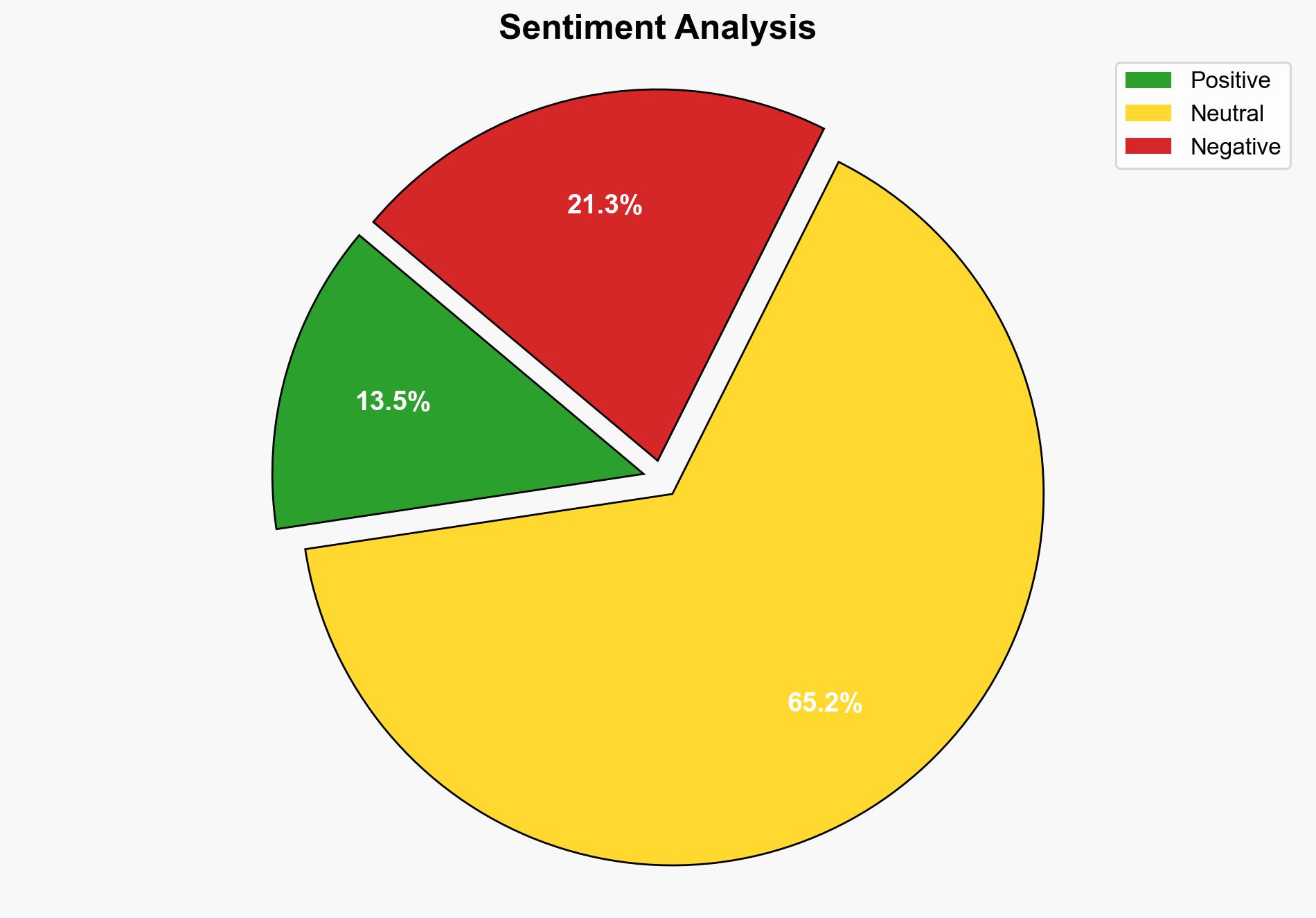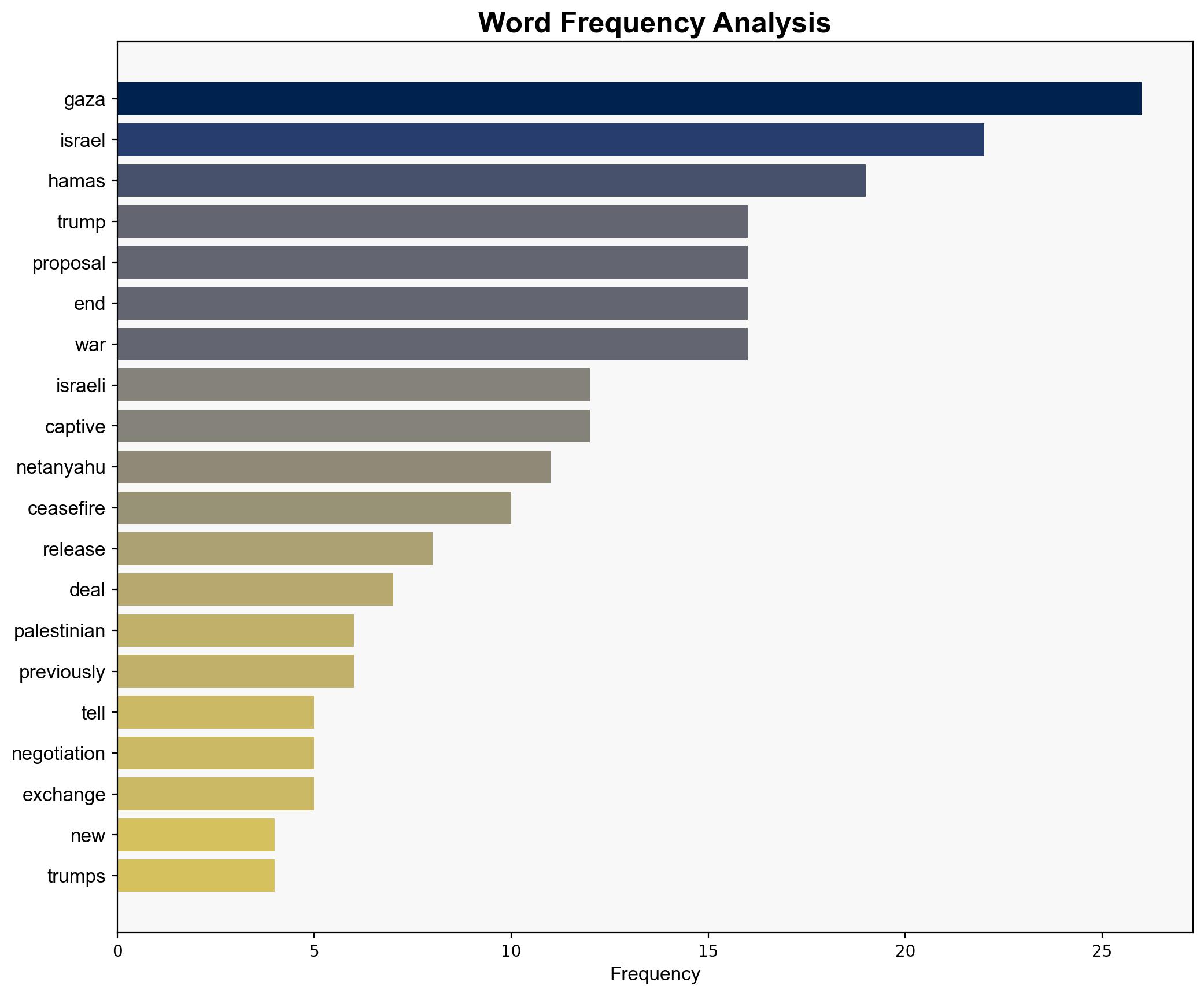Will Trumps new Gaza ceasefire proposal end Israels genocide – Al Jazeera English
Published on: 2025-09-08
Intelligence Report: Will Trump’s new Gaza ceasefire proposal end Israel’s genocide – Al Jazeera English
1. BLUF (Bottom Line Up Front)
The analysis suggests a low confidence level in Trump’s new Gaza ceasefire proposal effectively ending the conflict or being accepted by all parties. The most supported hypothesis is that the proposal will not lead to a lasting peace due to entrenched positions and insufficient incentives for both Israel and Hamas. Recommended action includes diplomatic engagement with regional stakeholders to explore alternative conflict resolution mechanisms.
2. Competing Hypotheses
1. **Hypothesis 1**: Trump’s ceasefire proposal will lead to a temporary cessation of hostilities, facilitating a broader peace agreement.
– **Supporting Evidence**: The proposal includes a prisoner swap, which could serve as a confidence-building measure. Hamas has shown some openness to negotiations.
– **Contradictory Evidence**: Israel’s insistence on Hamas disarmament and the release of captives without preconditions suggests limited flexibility.
2. **Hypothesis 2**: The proposal will fail to achieve a ceasefire or lasting peace due to fundamental disagreements and lack of trust.
– **Supporting Evidence**: Historical failures of similar proposals, Israel’s strategic goals to dismantle Hamas, and ongoing military operations indicate a lack of genuine commitment to ceasefire terms.
– **Contradictory Evidence**: International pressure and humanitarian concerns might push parties towards temporary agreements.
3. Key Assumptions and Red Flags
– **Assumptions**: Both parties are rational actors seeking to minimize losses; international mediators can influence outcomes.
– **Red Flags**: Historical precedent of failed negotiations, potential misrepresentation of intentions by involved parties, and lack of transparency in proposal details.
– **Blind Spots**: The internal political dynamics within Israel and Hamas that may affect decision-making processes.
4. Implications and Strategic Risks
– **Geopolitical Risks**: Continued conflict could destabilize the region further, impacting neighboring countries and international relations.
– **Economic Risks**: Prolonged hostilities may disrupt regional trade and economic stability, affecting global markets.
– **Psychological Risks**: Ongoing violence could exacerbate radicalization and recruitment by extremist groups.
– **Cascading Threats**: Potential for escalation into broader regional conflict if external actors become involved.
5. Recommendations and Outlook
- Engage with regional powers like Egypt and Qatar to mediate and propose alternative solutions.
- Enhance intelligence-sharing mechanisms to monitor compliance and intentions of involved parties.
- Scenario Projections:
- **Best Case**: A temporary ceasefire leads to comprehensive peace talks.
- **Worst Case**: Breakdown of negotiations results in intensified conflict.
- **Most Likely**: Limited ceasefire with sporadic violations and no long-term resolution.
6. Key Individuals and Entities
– Donald Trump
– Benjamin Netanyahu
– Hamas leadership
– Gideon Saar
– Basem Naim
7. Thematic Tags
national security threats, regional conflict resolution, diplomatic negotiations, Middle East peace process




